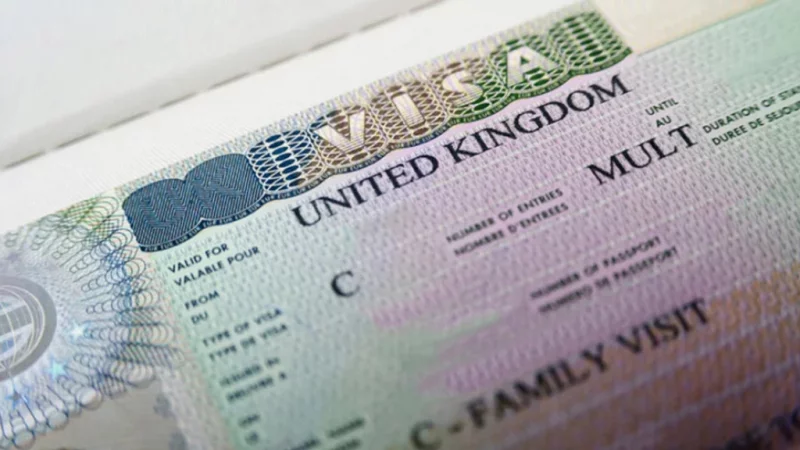


Millions of UK residents are about to embark on a dramatic journey as the country transitions to a purely digital immigration system, eliminating physical documents by 2025. Launching eVisas is essential to modernizing the border and increasing security, simplicity, and flexibility for anyone navigating the UK immigration system.
Starting April 17, 2024, millions of UK residents will get email invites to transition to e-visas, replacing physical immigration documents such as Biometric Residence Permits (BRPs). This transition is consistent with the government's objective of a modernized and digital border, which aims to improve security and value for the UK people.
The e-visa deployment will take place in stages, with invites being sent out in batches to existing BRP and Biometric Residence Card (BRC) holders. Recipients are encouraged to set up a UK Visas and Immigration (UKVI) account, which digitally verifies their legal immigration status.
This shift improves security by lowering the danger of fraud and document abuse. It also simplifies processes for individuals and companies that need immigration status verification.
The Home Office emphasizes the significant advantages of e-visas, which include strengthened security procedures to prevent document loss, theft, or manipulation. Some of the primary benefits of using e-visa are given below.

eVisas provides greater protection than physical immigration documents, lowering the risk of fraud, loss, and document abuse. Their digital nature renders them tamper-proof, ensuring the accuracy of immigration status verification.
eVisas provides real-time access from anywhere, allowing people to maintain their immigration status easily via Internet platforms. Updates to personal information, such as passport information, can be completed quickly through the UK Visas and Immigration (UKVI) account, giving consumers more flexibility.
Transitioning to e-visas simplifies immigration processes for individuals and companies that require immigration status verification. Digitizing immigration documents minimizes paperwork, improves efficiency, and makes the verification process easier for both users and authorities.
The transition to e-visas reflects the more significant digital transformation in border and immigration services.
The UK intends to develop a contactless border by eliminating reliance on physical documents, leveraging automation and modern technologies to improve border security and avoid immigration system abuse.
Tom Pursglove MP, Minister for Legal Migration and the Border, highlights the need for e-visas to provide tight control over who enters and stays in the UK. This digital revolution not only improves security standards but also saves UK taxpayers money by streamlining the immigration process.
Individuals who already use e-visas do not need to take any further actions as the UK moves toward a digital immigration landscape. Still, they are advised to keep their information current in their UKVI accounts. While e-visas have several advantages, worries concerning offline verification during system disruptions persist.
The Home Office assures customers that backup systems and alternate verification mechanisms are in place to handle such circumstances. It is recommended that travelers carry legitimate physical immigration documents until they expire to ensure compliance with immigration requirements.
If you receive an email invitation, follow the steps to set up a UKVI account and access your eVisa. For those who have not yet been invited, we will provide information on when you can transition. Remember that creating a UKVI account and acquiring an eVisa does not affect your immigration status or rights in the UK.
No, opening a UKVI account and receiving an eVisa are free of charge. The procedure is simple and intended to bring better convenience and security to anyone navigating the immigration system.
The Home Office has backup systems and alternate verification processes for such scenarios. If you cannot obtain your eVisa digitally, you can still prove your immigration status through alternative means. It is recommended that you maintain a physical document available in such cases.